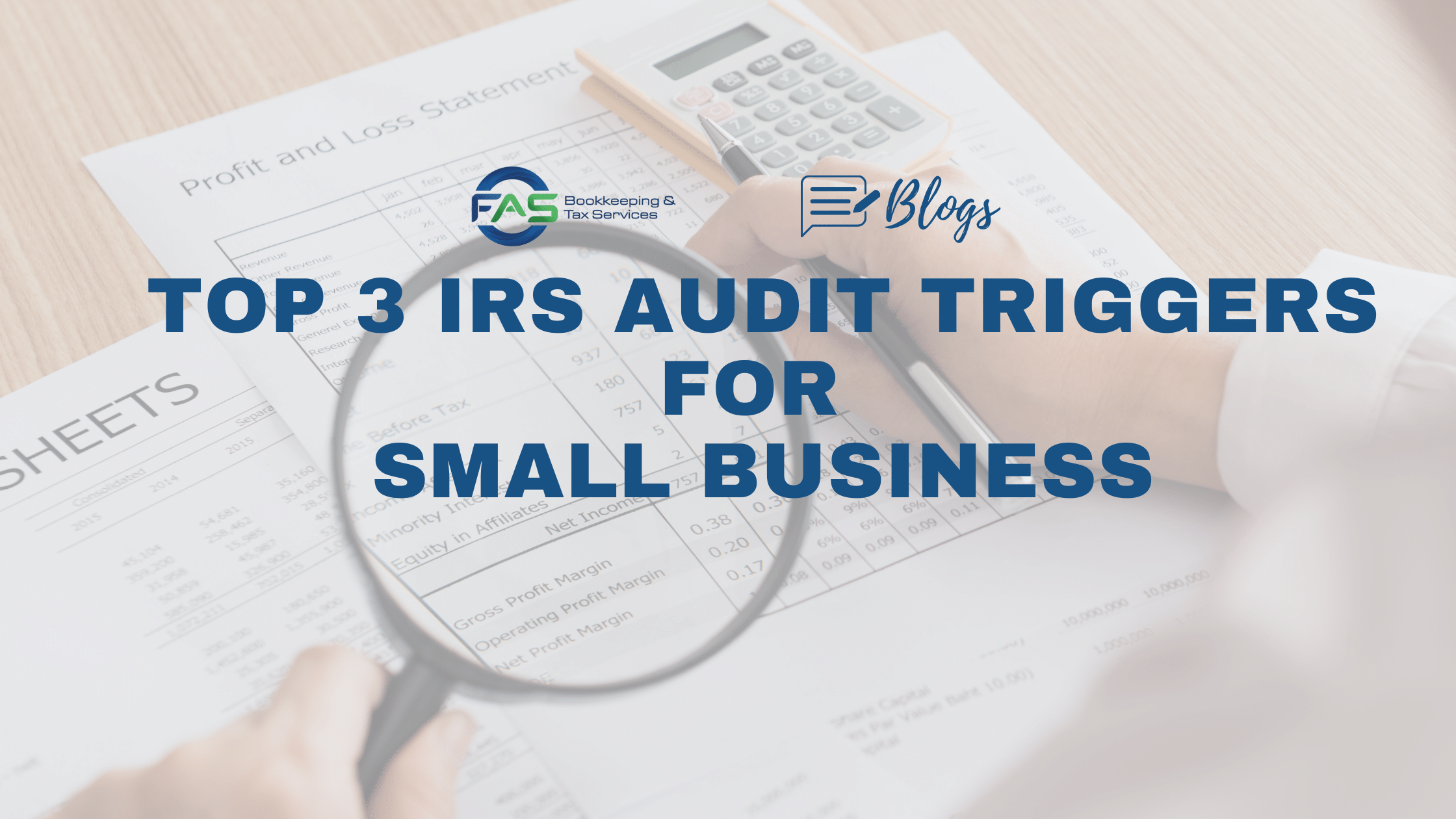Top 3 IRS Audit Triggers for Small Business
Small businesses are the backbone of the American economy. The US Small Business Administration reports that in 2019, small businesses created 1.8 million net new jobs as they employ approximately 47.3% of Americans.
A small business can be affected by the Internal Revenue Service (IRS) audits just as much as large businesses. While you may think that the IRS will never audit your small business, rest assured that this does happen whether you like it or not. The IRS has a list of what they call “audit triggers”—red flags that increase your chances of being audited. While the audit rates for small businesses are quite low, you do want to avoid putting yourself in the position of having to defend your numbers. The best way to prepare for an IRS audit is to realize what the IRS audit triggers are.
Here’s a rundown of the top 3 IRS audit triggers for small business:
Mixing Personal Expense Deductions as Business Expense Deductions
It’s tempting to think that because you’re talking business while you’re eating, your meal with your spouse should be a business expense. But this doesn’t mean that it’s a qualified expense.
The IRS will also look for documentation supporting the purpose of the meal and the people in attendance. If you cannot provide this documentation, then you’ll have trouble justifying the deduction.
In general, it’s best to avoid commingling personal and business expenses as much as possible. While it won’t necessarily disqualify an otherwise valid business deduction, it often makes it more difficult to prove that the expense was actually incurred for business purposes.
Noncompliance with Employment Taxes
Employment taxes are a part of doing business that many small business owners find themselves unprepared for. It can be difficult to keep up with compliance regulations not only because they’re constantly changing, but because they’re so complex.
To get started, you should know that as an employer, you’re responsible for paying your share of FICA and Medicare taxes on your employees’ wages, in addition to withholding the employee’s portion of these taxes. These taxes are calculated as a percentage of the wage amount.
To prepare for this expense, it’s important to know that part of it will come out of your profits – not from the wages paid to employees – so it may be wise to dedicate some time each month or quarter to calculate the tax liability for all your employees and put aside enough money to cover. This ensures that you are paying the right amount of employment taxes so you can avoid this IRS audit trigger.
Never showing profits
If you consistently show a loss year over year, you may find yourself in the IRS’s crosshairs.
It can be common for new businesses to lose money in the first few years of their existence, as they are getting off the ground and establishing themselves in their market. If your business is consistently losing money, it can be an indication that you could be using your business as a cover or shelter for income or assets that are not being reported, or that your business is not really a business at all. The IRS will want to conduct an audit to make sure this isn’t the case.
If your business is legitimate, but still continues to operate at a loss, it may indicate to the IRS that you are not trying to make money with your business—that what you have is a hobby rather than in business to make a profit.
The best way to avoid an IRS audit?
For small businesses, the best way to avoid these IRS audit triggers is to have a well-experienced bookkeeper with knowledge of tax law to help your business to achieve and maintain your business tax compliance. Bookkeepers can ensure that your transactions are properly classified and that all applicable tax deductions are acquired. An added bonus would be is if your bookkeeper is also an Enrolled Agent that is certified by the IRS to prepare and file taxes for personal and business federal income tax!
Don’t want your business to trigger these IRS audits? Get in touch with us and let our Bookkeepers and our Enrolled Agent prepare your books and taxes at the same time!



